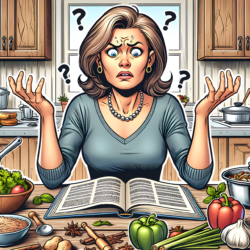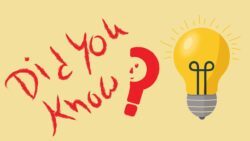Arlene Miller's Blog, page 8
June 20, 2024
Homonym, Homograph, Homophone, Heterograph: YOU Figure It Out!
 Image by Ivana Tomášková from Pixabay
Image by Ivana Tomášková from PixabayHomonym, homograph, homophone, heterograph: Ah, the English language! I nearly went crazy looking them up and trying to distinguish among them. I believe that is because there is a great deal of overlap.
Homonym – –Nym (name) implies that homonyms will be two or more words having the same pronunciation but different meanings and possibly different spellings: Two, to, and too are homonyms. So are there, they’re, and their.
Homograph – – Graph (spelling/writing) implies that homographs will be two or more words that are spelled the same but not necessarily pronounced the same and have different meanings. Bass the fish and bass the instrument are homographs. Bat (the animal) and bat (in baseball) are also homographs. Lead (the verb) and lead (the pencil kind) are homographs that are pronounced differently, as are minute (sixty seconds) and minute (very small).
Homophone — Phone (sound) implies that homophones will be two or more words having the same pronunciation but different meanings and spellings. Here are some homophones: break/brake, cell/sell, here/hear, flower/flour, bare/bear.
Heterograph – Hetero (other) and graph (spelling) implies that heterographs are words that sound the same as other words, but they have different spellings and different meanings: blue/blew, horse/hoarse, knead/need, paws/pause, son/sun.
So, now, what is the difference between a homonym and a homograph? And what is the difference between a homophone and a heterograph? You figure it out because my brain is beginning to fry!!!
ENGLISH!!!!!! As long as you spell the word correctly as you are using it, who cares???
June 13, 2024
Sexangles and Other Randomness….
 Image by Gerd Altmann from Pixabay
Image by Gerd Altmann from PixabayHere are 25 random word facts for you:
1. Pupaphobia is the fear of dolls and puppets.
2. Cowards have been called chickens since the 14th century.
3. The distance between your thumb and the opposite side of your hand when it’s extended is called the shaftment.
4. In 16th century English, twirk (spelled with an E, not an I) meant “to twist the hairs of a moustache.”
5. Cluck-and-grunt was 1930s slang for ham and eggs.
6. An anepronym is a trade name that has come to be used generally in the language, like Kleenex, Jacuzzi or Coke.
7. On average, for every letter Q used in written English there will be 56 E‘s.
8. A compulsive desire to look at something that horrifies you — like a horror film or an injury — is called cacospectomania.
9. Counting on your fingers is called dactylonymy.
10. Hexagons were once called sexangles.
11. In 18th century English, a wobble-shop was a place where beer was sold without a license.
12. Toucans used to be called egg-suckers.
13. Velociraptor literally means “swift thief.”
14. The proper name for taking your shoes off is discalceation. 15. To metagrobolize someone is to utterly confuse them. 16. The words a, and, be, have, he, I, in, of, that, the and to make up 25% of all written English. 17. A group of dragonflies is called a dazzle. 18 A person’s headmark comprises all of the facial features and characteristics that make them recognizable as themselves. 19. The word comet comes from a Greek word meaning “long-haired star.” 20. An autohagiography is an autobiography that makes the subject appear better than they actually are.21. The paddy-whack mentioned in the nursery rhyme “This Old Man” is a Victorian word for a severe beating.
22. Mediocre literally means “halfway up a mountain.”
23. In 18th century slang, “to play booty” meant “to play a game with the intention of losing.”
24. If you wrote out every number in the standard English counting system (one, two, three, four) in alphabetical order, no matter how high you counted the first number would always be eight. The second would always be eight billion. 25. The feeling of calmness or contentedness that follows a pleasant dream is called euneirophrenia. Thank you, Huffington Post! I AM ALWAYS LOOKING FOR GUEST POSTS, SO IF YOU WANT TO WRITE SOMETHING, PLEASE LET ME KNOW!!!!June 7, 2024
Monday Monday

 There must be eleventy billion songs (OK, maybe not, but there are hundreds and hundreds) with a day of the week in the title. You can probably guess which days are most common: those around the weekend — Friday, Saturday, Sunday, and Monday. Here is just a small sampling of songs with a day of the week in the title. Mostly I chose songs (or artists) I have heard of.
There must be eleventy billion songs (OK, maybe not, but there are hundreds and hundreds) with a day of the week in the title. You can probably guess which days are most common: those around the weekend — Friday, Saturday, Sunday, and Monday. Here is just a small sampling of songs with a day of the week in the title. Mostly I chose songs (or artists) I have heard of.
Do you know the artist? In many cases, there is more than one song with the same title and/or more than one artist who recorded the song, so if you don’t get it right, you might still be right. Answers below:
Monday Monday
Rainy Days and Mondays
Monday Morning
I Don’t Like Mondays
Blue Monday
New Moon on Monday
Manic Monday
Come Monday
Ruby Tuesday
Tuesday Afternoon
Tuesday’s Gone
Wednesday Morning 3 a.m.
Thursday
Thursday’s Child
Friday I’m in Love
Friday on My Mind
Black Friday
Last Friday Night (TGIF)
Another Saturday Night
Saturday in the Park
Saturday Night’s Alright for Fighting
Sunday Morning
Pleasant Valley Sunday
Sunday Bloody Sunday
Sunday and Me
Sunday Morning
Church on Sunday
Sunday Kind of Love
Gloomy Sunday
I Met Him on a Sunday
Lazing on a Sunday Afternoon
Sunday Will Never Be the Same
Scroll Down for Answers
Scroll Down
Monday Monday – The Mamas and the Papas
Rainy Days and Mondays – The Carpenters
Monday Morning – Fleetwood Mac
I Don’t Like Mondays – Boomtown Rats
Blue Monday – Fats Domino
New Moon on Monday – Duran Duran
Manic Monday – Bangles
Come Monday – Jimmy Buffett
Ruby Tuesday – Rolling Stones
Tuesday Afternoon – Moody Blues
Tuesday’s Gone – Lynyrd Skynyrd
Wednesday Morning 3 a.m. – Simon and Garfunkel
Thursday – Jim Croce
Thursday’s Child – David Bowie
Friday I’m in Love – The Cure
Friday on My Mind – The Easybeats
Black Friday – Steely Dan
Last Friday Night (TGIF) – Katy Perry
Another Saturday Night – Sam Cooke
Saturday in the Park – Chicago
Saturday Night’s Alright for Fighting – Elton John
Sunday Morning – Velvet Underground
Pleasant Valley Sunday – The Monkees
Sunday Bloody Sunday – U2
Sunday and Me – Jay and the Americans
Sunday Morning – Maroon Five/ No Doubt
Church on Sunday – Green Day
Sunday Kind of Love – Etta James
Gloomy Sunday – Billie Holiday
I Met Him on a Sunday – The Shirelles
Lazing on a Sunday Afternoon- Queen
Sunday Will Never Be the Same – Spanky and Our Gang
May 31, 2024
Nine Things You Might Not Know
 Image by neo tam from Pixabay
Image by neo tam from PixabayNine things about the English language you may not know….
1.The oldest, shortest, and most common word in the English language is I.
2. The word girl used to be gender neutral and refer to any child or young person.
3. After winning our independence from Britain, Noah Webster led the charge to be free from the “clamor of pedantry” of British spelling by removing unnecessary letters, such as the u from colour and flavour.
4. Words like this and thing have distinct th sounds, which is called a “dental fricative.” There are two types, voiced (like this), and voiceless (like thing). Interestingly, most languages do not have a voiced dental fricative.
5. “I before e, except after c
Or when sounded as a as in neighbor and weigh”
Unless the c is part of a sh sound as in glacier
Or it appears in comparatives and superlatives like fancier
And also except when the vowels are sounded as e as in seize
Or i as in height
Or also in -ing inflections ending in -e as in cueing
Or in compound words as in albeit
Or occasionally in technical words with strong etymological links to their parent languages as in cuneiform
Or in other numerous and random exceptions such as science, forfeit, and weird.
6. Did you know that enneacontakaienneagon is a word in the English language? (And you thought pronouncing supercalifragilisticexpialidocious was difficult?). In fact, the meaning of the word is just as bizarre as the word itself: it’s a shape with 99 sides.
7. Believe it or not, there are some words that appeared in the dictionary because of printing errors. They are known as ghost words. The nonexistent word dord appeared in the dictionary for eight years in the mid-20th century.
8. A new word is added to the dictionary every two hours.
Between now and your next meal, a new word will be put into the dictionary. During the course of the year, almost 4,000 new words are added.
9. Words we always use even though they add no meaning or value to a sentence are called “crutch words.” For example, in the sentence “Then I was like, OMG, then like, he went there, and like…” it is pretty obvious that like is the crutch word. Actually, honestly, and basically are also common crutch words.
May 23, 2024
Anastrophe Catastophe
 Image by Mohamed Nuzrath from Pixabay
Image by Mohamed Nuzrath from PixabayI am not a Swiftie. (Is that even how you spell it?) However, after taking two (going on three) songwriting classes in the style of Taylor Swift, I have to admit: She is a great songwriter if you like great lyrics and a catchy melody.
I don’t know if she is aware of the literary devices that she uses in her lyrics, but it is intentional, not random, even if she doesn’t know their names. And I didn’t know what these literary devices were called until I took the course.
Polyptoton is a device in which words derived from the same root are repeated in close proximity to each other.
We never had a shotgun shot in the dark (from “Getaway Car” by Taylor Swift)Who will watch the watchman?Takers take and that’s the truth (my lyric attempt)Neither snow nor rain nor heat nor gloom of night stays these couriersAnastrophe is the inversion in the usual order of words in a clause or sentence. Apparently it is the way Yoda speaks.
The greatest teacher, failure is (Yoda in Star Wars).Blue is the color of the shirt he wore.September was the month we met.Asyndeton is the omission or absence of a conjunction between parts of a sentence for effect.
Reduce, reuse, recycleHope, joy, tears, pain; can’t go through that again (my attempt at lyrics)You the Ashanti, the Yoruba, the Kru, bought,Sold, stolen, arriving on the nightmare
Praying for a dream. (from “On the Pulse of Morning”)
Epizeuxis is a literary or rhetorical device in which a word is repeated immediately for emphasis.
O horror, horror, horror! / Tongue nor heart cannot conceive nor name thee! (from Macbeth)Break, break, break, On thy cold gray stones, O Sea! (Tennyson)Never give in—never, never, never, never, in nothing great or small, large or petty, never give in except to convictions of honor and good sense. (Winston Churchill)We are never, ever, ever, ever getting back together. (Taylor Swift)Chiasmus is a device in which words, grammatical constructions, or concepts are repeated in reverse order.
“She has all my love; my heart belongs to her.”“Let us never negotiate out of fear, but let us never fear to negotiate.” (John F. Kennedy)“If you can’t be with the one you love, love the one you’re with” (Stephen Stills)“With my mind on my money and my money on my mind” (Snoop Dog)May 16, 2024
Home
 Image by Jill Wellington from Pixabay
Image by Jill Wellington from PixabayHome is where the heart is…
There’s no place like home…
Make yourself at home…
Home away from home…
Home sweet home…
Mi casa es tu casa…
Home. What is home? Where is home? Is home the house or apartment you live in? Is it your neighborhood? Your city? Your state? Your country? Any place with the people you love?
I don’t have the answers. And there is no one answer for everyone — or anyone. And these days, most of us have lived in several, or many, different houses. And likely many different cities, possibly many states, and sometimes multiple countries.
I have lived in about 17 different apartments or houses in my lifetime. And about 14 cities in three different states. So where is home?
All of them. But then if home is someplace that feels like home, maybe not all of them.
I was born in Massachusetts and lived there for decades. Then I moved to California and lived there for 26 years. I have now been in Florida for over four years. I guess they are all home in different ways.
I don’t go back to Massachusetts very often. If I have family there at this point, I don’t keep in touch with them. I do have a couple of friends there, and many acquaintances from way back in school. (Thank you, social media!) Last November I went back for a few days, and I saw several friends and acquaintances. It felt familiar, and it felt like home even though I have no really close attachments with anyone there. I regularly communicate with one friend there outside of Facebook. But it felt like home. I wouldn’t want to live there because of the weather and the fact that neither of my children is there.
My daughter, son-in-law, and little granddaughter are here in Florida. So it is home. I like my home, as far as my villa, although I don’t like the neighborhood, I don’t like the town, I don’t like the surrounding towns, I don’t like the traffic, and I don’t feel as if I fit in. I don’t feel “at home” here, and if it weren’t for my very special people here, I wouldn’t be here.
Although my business has done well as far as book sales since I moved to Florida (largely due to Covid, I think), otherwise it has not been a good place for my writing/publishing. I belonged to a writing group in California where I made friends and regularly attended meetings. I still belong to my publishing group there, since all the meetings are now on Zoom, and I attend them all. In Florida, I have been sadly disappointed. The writing groups are mostly critique groups, and they don’t seem to have regular meetings with good speakers, so it doesn’t really interest me. My publishing group has a conference once a year and pretty much nothing else. I have been on the board for over two years, so I feel some camaraderie, but it is not the same as my California group. When I get off the board in a couple of months I will see no one unless I go to the conference.
Part of the issue is that the Florida publishing group covers the entire state. However, I don’t feel they serve the members without regular meetings that are well attended, and they have not managed that.
I know most of my comfort with California has to do with the fact that I started my writing there. I learned how to publish my books there. I felt very appreciated there. I got lots of newspaper press there, and a great connection with a local indie bookstore. I did lots of workshops and speaking engagements.
In Florida, I have done barely anything. I don’t feel as if I have any footing as a writer/publisher. I don’t feel as if anyone knows or cares about my expertise. And there is a dearth of bookstores. Part of it was that I moved here right before Covid, but I don’t think that is the major part. In California I had lots of connections. I don’t feel as if I have any here.
California feels like home. My son is there, so that is important. And my writing community is there. I have lots of friends and acquaintances there. I fit in there. I fit in politically there as well. (Massachusetts too). Not so Florida.
I feel like a visitor in Florida. And sometimes like an alien. But here I will likely stay because of family. And that is really the most important thing. I just wish I were geographically close to my son as well.
Home.
May 10, 2024
Metonymy, Not Monotony
 Image by Richard Mcall from Pixabay
Image by Richard Mcall from PixabayAporia, metonymy, antimetabole, epistrophe. Another group of literary devices we might use and not know we are doing so. See last week’s post for four more.
Aporia –Rhetorical device in which a speaker expresses uncertainty or doubt—often pretended uncertainty or doubt—about something, usually as a way of proving a point. Examples from literature:
From Poe’s “The Tell-Tale Heart”: True!—nervous—very, very dreadfully nervous I had been and am; but why will you say that I am mad? The disease had sharpened my senses—not destroyed—not dulled them. Above all was the sense of hearing acute. I heard all things in the heaven and in the earth. I heard many things in hell. How, then, am I mad?From Frost’s “The Road Not Taken
Two roads diverged in a wood, and I—
I took the one less traveled by,
And that has made all the difference.
Metonymy – Figure of speech in which a word is replaced with another word closely associated with the original concept, such as “love” with “heart.” Similar to synecdoche, which uses a part to represent the whole or vice versa.
Antimetabole –Figure of speech in which a phrase is repeated, but with the order of words reversed.
Kennedy’s “Ask not what your country can do for you, but what you can do for your country.”When the going gets tough, the tough get going.Stephen Stills’ “If you can’t be with the one you love, love the one you’re with.”Dumas’s “All for one, and one for all.”Epistrophe – Repetition of a word or expression at the end of successive phrases, clauses, sentences, or verses.
I swear to tell the truth, the whole truth and nothing but the truth.Lincoln’s “government of the people, by the people, for the people”Dylan’s “Just Like a Woman”
She takes just like a woman, yes
She makes love just like a woman, yes, she does
And she aches just like a woman
But she breaks just like a little girl
May 3, 2024
Synecdoche, not Schenectady
 Image by Clker-Free-Vector-Images from Pixabay
Image by Clker-Free-Vector-Images from PixabaySynecdoche, paralipsis, epanalepsis. Huh? They are literary devices that many of us do not learn in school. We probably wouldn’t have been able to spell them anyway.
Synecdoche — A figure of speech in which a part is made to represent the whole or vice versa.
All hands on deck! (It is really not just hands, but all people.)I haven’t worn heels in years. (It is really shoes with heels.)We will put no boots on the ground in Ukraine. (Boots stands for people.)Many faces in the crowd are my friends and relatives. (People, not just faces.)I bought some new wheels last week! (A car, not just the wheels.)Paralipsis —The literary device of giving emphasis by professing to say little or nothing about a subject.
I am not saying you are the cause of this messy kitchen, but no one else was here today.I don’t want to embarass Teresa, so I won’t talk about what she did.We won’t say a word about all the criminals in politics right now.No one wants to accuse her of shoplifting that expensive purse.I will talk only about his good side.Epanalepsis — The repetition of a word or a phrase with intervening words setting off the repetition, sometimes occurring with a phrase used both at the beginning and end of a sentence. It also can occur over two sentences.
We know nothing about that — nothing.He smiled his perfect smile.I know nothing about my neighbor. We have lived next door to each other for years, yet I know nothing.Blow winds and crack your cheeks! Rage, blow! (from King Lear)Take it easy, take it easyDon’t let the sound of your own wheels
Drive you crazy
Lighten up while you still can
Don’t even try to understand
Just find a place to make your stand
And take it easy (from the Eagles. Many songs use repetition, so epanalipsis is common in popular music.)
April 26, 2024
Styles of Writing?
 Image by Agata from Pixabay
Image by Agata from PixabayYou already know I am a reader. I have noticed a couple of things in some of the books I have recently read.
The first is the “rambing, train of thought, many characters, loaded with details” style I have found in more than one book I have recently read — or tried to read. I already talked about The Heaven and Earth Grocery Store in a recent post. That book was written in that style. I didn’t like the long sentences, mentions of so many characters you cannot keep them straight, and the tedious details. However, I think the plot and main characters in that book were good enough to definitely make it worth reading, and I enjoyed it. You don’t need to memorize who every character is or closely read all the detail to follow the story. And it is a good story with good characters.
On the other hand, I did not make it through Boy Swallows Universe by Trent Dalton. Same detailed style, but so boring. However, most people loved it. It has very good reviews on Amazon. I couldn’t tell you what it was about. Totally forgot, and I hardly read any of it.
The other style I have seen recently is bouncing back and forth in time. Many historical fiction books go back and forth from years ago to now, but some books go back and forth weeks or months and by character, and it can get a bit confusing for this old brain. Mad Honey by Jodi Picoult is one of those books, but I liked it anyway. I did skim through many of the parts about beekeeping though. It is primarily a murder story. And I would recommend it.
Some other books I have read recently:
The Unhoneymooners by Christina Lauren: Somewhat predictable romance. Not bad.
Signal Fires by Dani Shapiro is worth reading. And it doesn’t ramble. It is about friendship between generations and how an event can change everything. Recommended.
I thought I would really like The Librarianist by Patrick DeWitt because I like books about libraries and bookstores. It really wasn’t about either. It is about a retired librarian and a senior center. It is an interesting read with quirky characters.
Looking for Jane is a must read – at least for some people. The Janes were a network of women in Chicago who performed safe abortions before Rowe V Wade. This book actually took place in Canada in the 1980s before abortion was legal there.
And that is my book wrap-up — minus some of the quirky nonfiction I read!
April 19, 2024
One Word or Two?
 Image by xenostral from Pixabay
Image by xenostral from PixabayThere are many instances of one-word or two-words confusion in the English language. So please, if you must use a lot it is two words! As is thank you.
But this post deals with a specific category in the “one word or two” dilemma. These are the words that are generally two words when used as verbs and one word when used as nouns or adjectives. To further complicate matters, when used as adjectives, sometimes they are hyphenated.
I have seen so many people write, “I am going to the gym to workout.” Or “You need to login to the computer.” Nope.
Here are some examples of words that are two when used as verbs and one when used as nouns or adjectives. This is not a comprehensive list.
Back up the computer. (verb) – It’s time to do a backup of the computer. (noun)
Break down the steps for me. (verb) – My computer had an apparent breakdown. (noun)
I need to check up on her. (verb) – It is time for my yearly checkup. (noun)
Clean up this mess (verb). – I am on the cleanup committee. (adjective)
Count down from 100 to 1 (verb). – There is a countdown as the ball drops on New Years. (noun)
I need to follow up on that idea. (verb) – I have a follow-up appointment. (adjective)
I hang out with my friends. (verb) – I know a great hangout for pizza. (noun)
Please hook up my dress. (verb) – I am not interested in a hookup with you. (noun)
Log in to the computer.(verb) – Do you know your login information? (adjective)
Look out for the train! (verb) – The lookout area is on top of the mountain. (noun)
Take off that awful tie. (verb) – The plane is ready for takeoff. (noun)
Take out the trash. (verb) – I am ordering takeout for dinner. (noun)
I need to wake up early. (verb) – Did you get a wakeup call? (adjective)
Warm up before you exercise. (verb) – Did you finish your warmup? (noun)
I work out in the morning. (verb) – That was quite a workout! (noun)



